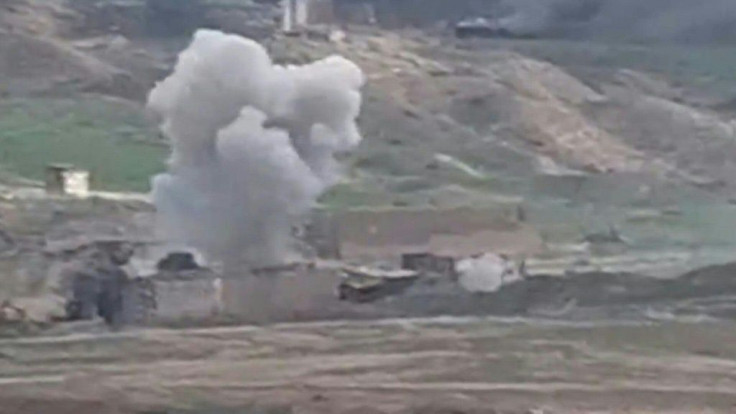US Offers To Help Facilitate Peace Talks Between Azerbaijan And Armenia
KEY POINTS
- The U.S. State Department offered to help bring Armenia and Azerbaijan to the table for peace talks
- The U.S. is part of the OSCE Minsk group which helps oversee relations between most European nations
- The conflict between Armenia and Azerbaijan is over a mountainous region along their border belonging to Azerbaijan housing a large Armenian population
Tensions continued to escalate Wednesday between Azerbaijan and Armenia as both countries appear to inch closer to war. While skirmishes continued along their shared border, the U.S. is calling on the fighting to stop and offered to mediate potential peace talks for the United Nations.
The U.S. State Department’s standing offer was first made on Monday, which has been reiterated everyday as the U.S. joined the UN and several nations in denouncing the violence.
“The United States condemns in the strongest terms this escalation of violence,” the U.S. State Department said in a press release. “Deputy Secretary Biegun called the Foreign Minister of Azerbaijan, Jeyhun Bayramov, and the Foreign Minister of Armenia, Zohrab Mnatsakanyan, to urge both sides to cease hostilities immediately, to use the existing direct communication links between them to avoid further escalation, and to avoid unhelpful rhetoric and actions that further raise tensions on the ground.”
The State Department’s call echoed calls from the UN for peace talks to begin. Those calls intensified after a UN Security Council meeting on Tuesday where Secretary-General Antonio Guterres condemned the violence and asked for peace talks to begin.
The U.S. has the added benefit of strong relations with Azerbaijan and Armenia as it helped both countries stabilize and grow after the fall of the Soviet Union. The U.S. offered to leverage its position within the Organization for Security and Co-operation in Europe, or OSCE, to bring the countries to the table.
“We urge the sides to work with the Minsk Group ... to return to substantive negotiations as soon as possible,” the U.S. State Department said. “As a co-chair of the OSCE Minsk Group, the United States remains committed to helping the sides achieve a peaceful and sustainable settlement to the conflict.”
Both countries rejected calls for peace and continued accusing each other of instigating the recent violence.
Another issue working against the U.S. potentially overseeing peace talks is the upcoming presidential election in November. Democratic presidential nominee Joe Biden previously called on the Trump administration to address the fighting between Armenia and Azerbaijan, but both candidates appear more focused on the homestretch of their campaigns.
The recent conflict is over the Nagorno-Karabakh region along the Azeri-Armenian border. The mountainous area was given to Azerbaijan as national borders were established between former Soviet-satellite states during the late 80s and early 90s.
However, most of the region’s populace is Armenia and has pushed back against Azeri-sovereignty since then. This led to the start of war in 1988 over the region’s independence.
Both sides reached a cease-fire 1994, which provided the region de facto independence, though it is still internationally recognized as part of Azerbaijan.

© Copyright IBTimes 2025. All rights reserved.





















